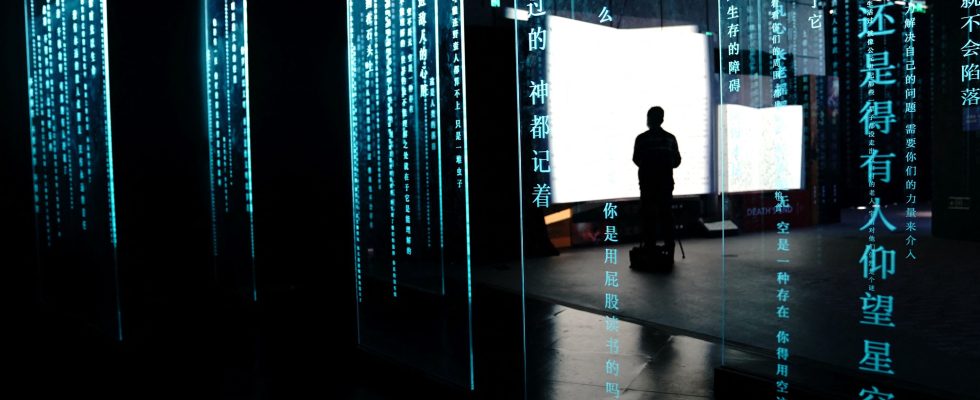Even Barack Obama made it one of his bedside books. The Three-Body Problem, international science fiction success, is adapted into a series on Netflix by the showrunners of Game Of Thrones. With this highly anticipated new series, the platform is launching into the genre of alien invasion: a distant and mysterious entity with advanced technology comes to visit humanity with dire plans. Of War of the Worlds has Independance Day, the chorus is classic. With one difference: this time, our invader is discovered neither by a British nor an American, but on the other side of the globe, in China.
Series The Three-Body Problem is further proof of the worldwide success of Liu Cixin’s eponymous book. Since its publication in 2008, the three volumes of his trilogy have sold more than 35 million copies each. Translated in 2013 in the United States, the first won the prestigious Hugo Award for best novel two years later. This triumph, unprecedented for a Chinese science fiction author, focused the attention of intellectuals on the work on both sides of the Pacific.
Child of the Cultural Revolution
Instrument of soft power for Beijing, the novel is also seen as a tool for deciphering a “Chinese vision” of the future. “Like any literary work, it fits into a specific context,” explains Gwennaël Gaffric, French translator of the Three-body problem. Like that linked to the legacy of the Cultural Revolution, for example, launched in 1966 by a Mao keen to consolidate his power: the entire trilogy is set in motion due to the trauma of a young woman who saw her father assassinated by the Red Guards. Disgusted by humanity, she decides to respond to a mysterious message, revealing our position to invaders from elsewhere. “Liu Cixin was born in 1963. He is a child of the Cultural Revolution. The main criticism of his novel is that of blind faith in the Maoist religion,” continues Gwennaël Gaffric.
If the novel certainly sheds light on the country’s view of its recent history, do not count on seeing it as a direct criticism of current power. “The book was released before the arrival of Xi Jinping. The country has changed a lot since then, observes Gwennaël Gaffric. In the years following its publication, many thought that it presented a Chinese vision of the future. But it It’s a somewhat vain illusion.” Combining detective intrigue – part of the trilogy takes place in the 2000s, while the most brilliant scientists die one after the other – and anticipation, The Three-Body Problem is obsessed by a question, the leitmotif of the trilogy: what would humanity do if it knew it was doomed? “Liu Cixin suggests ideas, imagines political alternatives in the face of a multitude of threats, but never takes a position,” continues the translator. More interested in questions than in answers, Cixin does not offer a Chinese vision of the future, but endlessly explores the moral and technological dilemmas that will haunt humanity… until its announced end.
.
